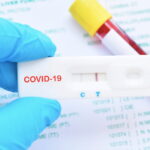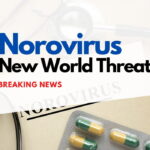The Omicron variant has taken the world by storm, leaving everyone with a burning question: What are the symptoms?
This new variant of COVID-19 has scientists scrambling to understand its effects. In this short read, we’ll unveil the primary symptoms of the new COVID variant, equipping you with knowledge and keeping you one step ahead.
So, let’s gain a better understanding of this new variant. We’ve done the deep dive so you can stay informed and safe. Read on to understand more about how Omicron may affect you.
Recognizing the Symptoms
Early reports suggest that the Omicron variant may present a unique set of symptoms compared to its predecessors. It’s worth noting that these symptoms may change as we gather more data.
Frequent symptoms include a high temperature, cough, and loss of smell or taste. Less commonly, people report sore throat, body aches, and a runny nose. Always remember that the Omicron variant signs vary from person to person.
Some initial symptoms may be mild, similar to a common cold. Getting tested if you feel unwell is essential, even if your symptoms are mild. This helps to prevent the spread of the virus.
Understanding Severity
The severity of the Omicron variant is yet to be fully understood. As it is relatively new, complete data is not available.
Preliminary observations suggest that Omicron may lead to milder illness than earlier variants. However, this does not mean it should be taken lightly. Everyone should continue to follow local health guidelines to protect themselves and others.
It’s crucial to remember that even a mild case can be severe for those with underlying health conditions. Always consult with healthcare professionals if you have concerns about your health.
Impact on Vaccinated Individuals
Vaccinations remain our best line of defense against COVID-19. Vaccines are designed to reduce severity and health implications.
Preliminary findings suggest that while Omicron may partially evade vaccine immunity, it does not bypass the protection offered altogether. Reinfections appear more common but typically less severe in vaccinated individuals.
Getting your primary series and booster shots are now more important than ever. They increase your level of protection and could prevent severe illness.
The Importance of Testing
Testing remains a critical tool in managing and mitigating the spread of Omicron. Quick and accurate testing helps identify cases, track the spread, and initiate isolation measures.
Rapid antigen tests are considered effective against the Omicron variant. They provide results within minutes, helping to contain the spread sooner.
Even if your symptoms are mild, get tested if you’ve been exposed to someone with the virus. Remember: early detection can save lives.
Staying Informed
Staying updated about Omicron is key in these uncertain times. This situation is rapidly evolving, so it’s essential to stay informed.
Trustworthy sources of information include the World Health Organization (WHO), the Centers for Disease Control and Prevention (CDC), and your local health department. They regularly update their guidelines based on the latest research.
Avoid misinformation spread on social media. Always cross-check the information with credible health organizations. Remember, knowledge is your best defense against the virus.
Spot the Symptoms of the New COVID Variant
Staying alert to the symptoms of the new COVID variant, Omicron, is crucial. If you feel under the weather, get a test. Keep your shots up to date and follow health rules.
Only trust reliable news. Together, we can beat this. Stay safe!
For more informative articles, please visit the rest of our blog.
Read Also
- Decoding Omicron: Symptoms of the New COVID VariantThe Omicron variant has taken the world by storm, leaving everyone with a burning question: What are the symptoms? This new variant of COVID-19 has scientists scrambling to understand its effects. In this short read, we’ll unveil the primary symptoms of the new COVID variant, equipping you with knowledge and keeping you one step ahead.… Read more: Decoding Omicron: Symptoms of the New COVID Variant
- Understanding Covid Antibody Testing: What You Need To Know In The USAThe current global pandemic caused by the novel coronavirus has put a spotlight on the COVID-19 antibody testing process. It is important for people to understand how it works and what it can help them determine. This article will provide an overview of COVID-19 antibody testing in the United States, including how it works, its… Read more: Understanding Covid Antibody Testing: What You Need To Know In The USA
- The Continuous Role Of Pharmacy In COVID-19 Prevention And TreatmentTo say that the pharmacy’s role in curbing the COVID-19 pandemic is important is an understatement, at least from a numbers perspective. According to the latest statistics, of the 600-plus-million vaccine doses given in the U.S., 276 million were delivered by pharmacies via the Federal Retail Pharmacy Program (FRPP). In short, that’s two out of… Read more: The Continuous Role Of Pharmacy In COVID-19 Prevention And Treatment
- China Innovates a Nanotechnology Vaccine to Protect Against Coronavirus VariantsChinese scientists have developed a multivalent nanotechnology vaccine for the Coronavirus, which can protect against infection of its variants. And the Chinese “Xinhua” news agency reported last Monday, that scientists from Sun Yat-Sen University, the First Affiliated Hospital of Guangzhou Medical University, and from the Guangdong Provincial Center for Disease Control and Prevention, have designed… Read more: China Innovates a Nanotechnology Vaccine to Protect Against Coronavirus Variants
- Why Some People Till Now Didn’t Get Infected With Coronavirus, What is The Secret?In the United States, government data shows that more than half of Americans may have never contracted the Covidvirus; Which raises the question of scientists about whether people who have avoided infection with the emerging virus are fully immunized against it. Which may contribute to providing new clues about how Covid attacks the body. Immunity… Read more: Why Some People Till Now Didn’t Get Infected With Coronavirus, What is The Secret?
- UK Announces the Discovery of the “Omicron XE” VariantThe United Kingdom announced the discovery in the country of the new “Omicron XE” mutant, which is a variant of Omicron, whose symptoms are very similar to those of the common cold. This coincided with India’s announcement that it had recorded the first case of the new mutant “Omicron XE” of the Coronavirus, in the… Read more: UK Announces the Discovery of the “Omicron XE” Variant
- Does covid-19 Cause Diabetes?Millions of people around the world were infected with Covid-19 during the past two years, and so far many complications have arisen due to this virus, and now scientists have found that people with Covid-19 have a very large increase in the chances of developing type 2 diabetes. Where scientists found that people who were… Read more: Does covid-19 Cause Diabetes?
- The Outbreak of Norovirus Panics The WorldThe outbreak of “Norovirus” causes panic in the world .. leads to death within 3 days .. and 8 symptoms of infection. It seems that the virus war will not end, although the world is still suffering from the consequences of the emerging coronavirus that is still chasing humanity and has caused the death of… Read more: The Outbreak of Norovirus Panics The World









